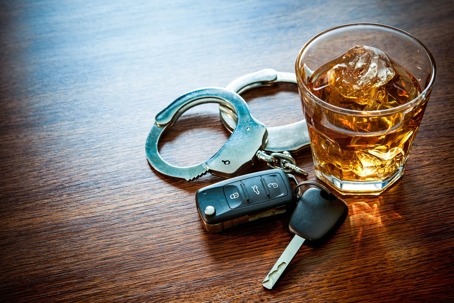Attorneys are often asked whether you can refuse to perform any and all of the sobriety tests law enforcement asks you to perform during a DUI Investigation. The answer to that question, like almost all legal questions, is “it’s complicated.” It’s best to address these questions chronologically in the order they are presented to a driver.
There are three core tests a driver is asked to perform over the course of a DUI Investigation. They are: (1) The Field Sobriety Tests, (2) The Preliminary Breath Test, and (3) the Post-Arrest Official Breath Test.
Can you refuse to perform Field Sobriety Tests?
During a DUI Investigation, an Officer will routinely ask a driver to complete a series of physical and cognitive tests which are designed to show signs of impairment as a result of alcohol or drug use. The most common test utilized by Law Enforcement are the Nine Step Walk and Turn, the One Leg Stand Test and the Horizontal Gaze Nystagmus Tests. These tests are generally referred to as “Field Sobriety Tests.”
Field Sobriety Tests are voluntary and you cannot be forced to complete them by an officer. It is not uncommon for a police officer to use language that could be perceived something other than a request. For example, an Officer could say, “I need you to perform some field sobriety tests for me.” You will need to consult with your attorney to determine whether the request to perform field sobriety tests was phrased properly and if there is a basis to contest them being allow into evidence.
It is, however, important to know that refusal to perform field sobriety tests can be used by the officer and the court as part of the analysis as to whether an officer has the legal right to arrest you for suspicion for driving under the influence. It is also important to be respectful when declining the tests of you chose to do so. A simple “No thank you, I respectfully decline to participate with these tests” puts you in the best position with the officer and the eventual trier of fact.
Can you refuse the Preliminary Breath Test?
The preliminary breath test is a test to determine whether there is any alcohol in your system using a handheld device approved by the Virginia Department of Forensic Science. They are not meticulously calibrated like the formal breath test we will discuss later, but are used to provide an officer a powerful basis to place a driver under arrest for driving under the influence. An officer is required to offer you this test during a DUI investigation.
It is important to note that by statute, if any alcohol is detected in the preliminary breath test, a law enforcement officer is permitted to charge a driver with Driving under the Influence. As a result, most attorneys do not recommend a driver agree to perform this test. The fact you refuse to submit to this test cannot be used against you in the prosecution of a DUI.
Can you refuse a Post Arrest Official Breath Test?
This is the most complex of the questions before us. Foundationally, in the United States Constitution, a citizen cannot be required to provide evidence against himself or herself. However, if you travel on the highways of Virginia, you provide the government with what is known as "Implied Consent”, requiring you to submit to a breath test if there is probable cause to believe you operated a vehicle under the influence of drugs or alcohol.
As a result, a driver suspected of DUI is often put in the difficult position of deciding whether or not to submit to an official breath test after they have been arrested. If they provide a breath sample, they are potentially providing damning evidence against themselves which will likely be used against them at trial. If they refuse to submit to the test, they will almost assuredly receive a civil charge against them generally referred to as “Refusal to Submit to a Breath Test.”
While not a criminal conviction, a Refusal conviction does carry with it a loss of license for a period of twelve months. Prior to 2020, a refusal conviction was a tremendously serious sanction because a driver who was convicted was not eligible for even a restricted license of the entire twelve months their license was suspended. This code section was revised in 2020 and now a driver convicted under this statute is only barred from having a restricted license for 30 days after conviction. As a result, a refusal conviction is no longer as difficult to stomach as it once was. However, it is important to note that unlike a standard restricted driver’s license which requires the installation of the ignition interlock device on the vehicle you choose to operate, this code section requires installation on all vehicle registered to you.
Prior to 2020, most attorneys would have told you refusing to submit to the breath test was a way to ensure you were getting convicted of a DUI. The difficult sanction of not being allowed to operate motor vehicle for over a year was often leveraged against a driver charged with DUI and Refusal to result in a plea to the Driving Under the Influence. Without that sanction, the analysis is a bit murkier.
The answer therefore to the question can you refuse a post arrest breath test is a qualified yes. You absolutely can refuse to take the test, but it will likely come with the additional sanction of a Refusal charge and a possible hard loss of license for 30 days and a subsequent 11 months under a stringent restricted license.
Consult an Attorney
As always, this discussion is not formal legal advice and if you have any questions, we absolutely recommend you reach out to us or another attorney to review your case’s facts and circumstances for guidance on your best path forward.
